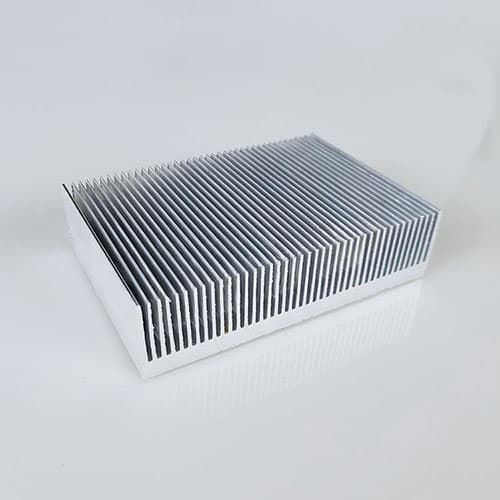- Time:2024/08/23 Posted:Dongguan Quality Innovation And Technology Co.,Ltd
Aluminum radiators are widely recognized as essential heat dissipation devices in modern technology, playing a crucial role in electronic equipment, the automotive industry, aerospace, and other fields. This article explores the advantages and disadvantages of aluminum radiators, providing a comprehensive understanding for those considering their application.
Advantages
Excellent Thermal Conductivity:
Aluminum is renowned for its high thermal conductivity, making it an ideal material for radiators. Compared to other metals, aluminum radiators can transfer heat from the source to the dissipation surface more rapidly, significantly enhancing heat dissipation efficiency.Lightweight Design:
As a lightweight material, aluminum is much lighter than copper, making it highly desirable in industries like automotive and aerospace. The reduced weight of aluminum radiators contributes to lowering the overall weight of the system, which is especially beneficial in applications where weight is a critical factor.Strong Corrosion Resistance:
Aluminum’s natural resistance to corrosion and oxidation ensures durability, even in humid or corrosive environments. This characteristic extends the service life of aluminum radiators, making them a reliable choice for long-term use in challenging conditions.Cost-Effective Manufacturing:
Aluminum radiators are more cost-effective to produce compared to their copper counterparts. Aluminum is less expensive as a raw material, and its processing is relatively straightforward, allowing for mass production to meet market demand.
Disadvantages
Lower Strength:
One of the primary drawbacks of aluminum is its lower strength compared to other metals. Aluminum radiators can be more susceptible to deformation or cracking under external impact or vibration. To address this, it’s essential to reinforce the structural design during the manufacturing process to enhance the radiator's strength and stability.Limited Heat Dissipation Area:
While aluminum radiators are lightweight, this characteristic often results in a smaller heat dissipation area compared to copper radiators. This limitation can be a concern in high-power devices or applications requiring extensive heat dissipation.Unsuitability for High-Temperature Environments:
Aluminum’s relatively low melting point makes it less suitable for high-temperature applications. When exposed to temperatures exceeding its melting point, aluminum radiators may soften or melt, compromising their functionality. In such environments, alternative materials with higher temperature tolerance are recommended.Conclusion
Aluminum radiators offer numerous advantages, including excellent thermal conductivity, lightweight design, strong corrosion resistance, and cost-effective manufacturing. However, they also come with drawbacks such as lower strength, limited heat dissipation area, and unsuitability for high-temperature environments. When selecting a radiator, it’s important to consider the specific application and requirements to ensure optimal heat dissipation and longevity of the device.
